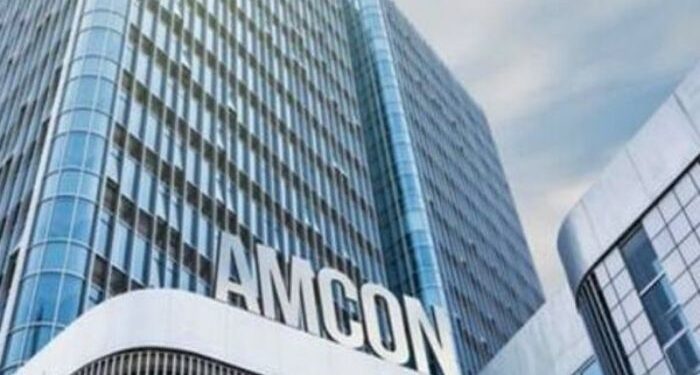*Past ‘Deals’ Put Corporation Under Scrutiny
The Asset Management Corporation of Nigeria (AMCON) has disclosed that it has sold the embattled Ibadan Electricity Distribution Company (IBEDC) for N100 billion, nearly doubling the amount originally proposed earlier in the sale process.
IBEDC is one of the five distribution companies (DisCos) under the management of AMCON.
The rest are the Abuja Electricity Distribution Company (AEDC), Benin Electricity Distribution Company, Kaduna Electricity Distribution Company, and Kano Electricity Distribution Company.
Indeed, the DisCos have been performing abysmally with major parts of Abuja, and Kogi State under the AEDC experiencing darkness for quite some time.
It has been same agonising experiences for consumers under the other companies.
However, it was a sigh of relief for consumers in Mowe, Magboro axis of Ogun State, who have been experiencing darkness for quite some years.
Some analysts say the succesful completion of the IBEDC deal may open opportunities for the sale of the remaining four companies and possibly serve as a precedent for the remaining DisCos as well as broader public-private partnerships designed to strengthen electricity infrastructure and service delivery.
Gbenga Alake, the Managing Director (MD) and Chief Executive Officer (CEO) of AMCON, disclosed details of the sale of IBEDC on Thursday, a development, analysts say, was alien to the Corporation.
This is because they argue that the Corporation has lost public confidence in recent times following some of the deals of AMCON in the past, including acquisition, sales as well as receivership allegedly shrouded in secrecy.
Some analysts say it will take consistent transparent deals on the part of the Corporation to engender the much needed puvlic confidence.
Specifically, in April 2024, the federal government said it would sell the five power distribution companies under AMCON for poor services and indebtedness.
“At the time we took over management, IBEDC had already been marked for sale,” said Alake
Alake explained, “But we intervened, rejected the initial offer, and pushed for a better bid. Ultimately, we secured nearly twice the value initially proposed”.
Alake is confident in the deal’s validity and underlying process.
The backdrop to this sale is a lawsuit filed on May 15, 2025, by the African Initiative Against Abuse of Public Trust—an anti-corruption civil society organisation.
The group petitioned the Federal High Court in Abuja, filing suit FHC/ABJ/CS/866/2025, against AMCON, the Nigerian Electricity Regulatory Commission (NERC), the Bureau of Public Enterprises (BPE), and IBEDC.
READ ALSO:Dollar Trims Gains Against Euro, Yen As US Tariff Deadline Looms
The suit alleges the sale was conducted “secretively and illegally,” and claims the stake—reportedly 60 percent—of IBEDC was undervalued at $62 million (approximately N52 billion at current exchange rates).
This starkly contrasts with the $169 million paid during IBEDC’s initial privatisation in 2013, allegedly representing a loss of $107 million in public resources.
IBEDC, one of Nigeria’s 11 distribution utilities, came under AMCON’s management in early 2022 following a takeover of its investor’s assets due to loan default.
In February 2023, a Federal High Court in Lagos temporarily blocked AMCON from selling the company, citing pending litigation regarding its authority to dispose of the assets.
Despite continued legal constraints, AMCON has pursued the sale under the federal government’s strategic direction.
Alake highlighted that AMCON had initially rejected a lower offer when assuming control over IBEDC’s sale.
After reopening the bidding, a N100 billion deal was struck, nearly doubling the prior offer.
For AMCON, the sale marks a strategic step in the recovery of debts owed by creditors, as mandated by its remit to manage and liquidate non-performing assets.
Metrobusinessnews.com,(MBN) checks revealed that public perception of AMCON is still bad following alleged ignoble roles, the immediate past administration played in the acquisition and sale of some banks and Airlines, along with the Central Bank of Nigeria (CBN) under the immediate past Governor.
Tongues are still wagging as to where the proceeds of the alleged sale of some banks, like Keystone and Polaris, were kept and whether due process was followed.














